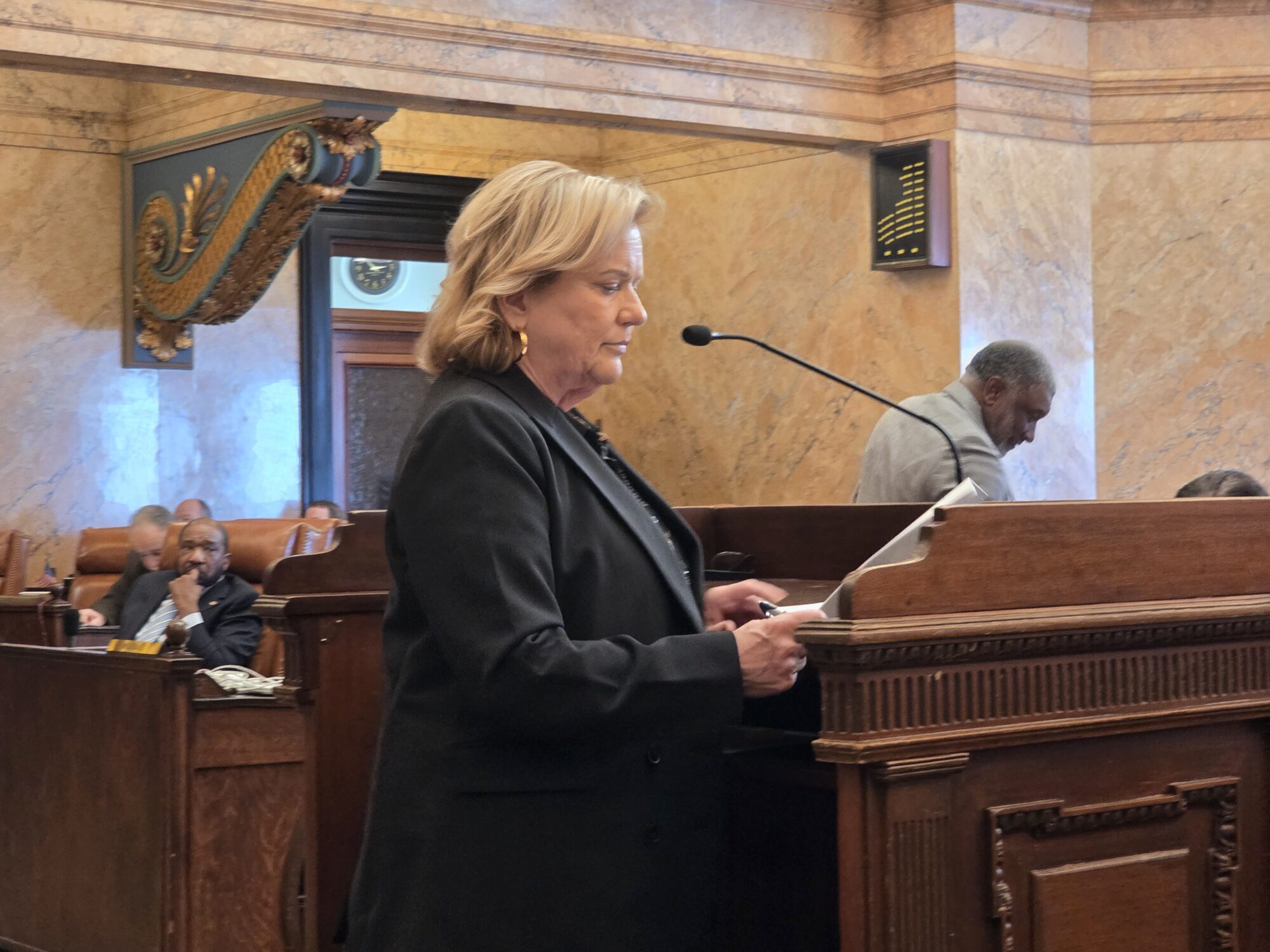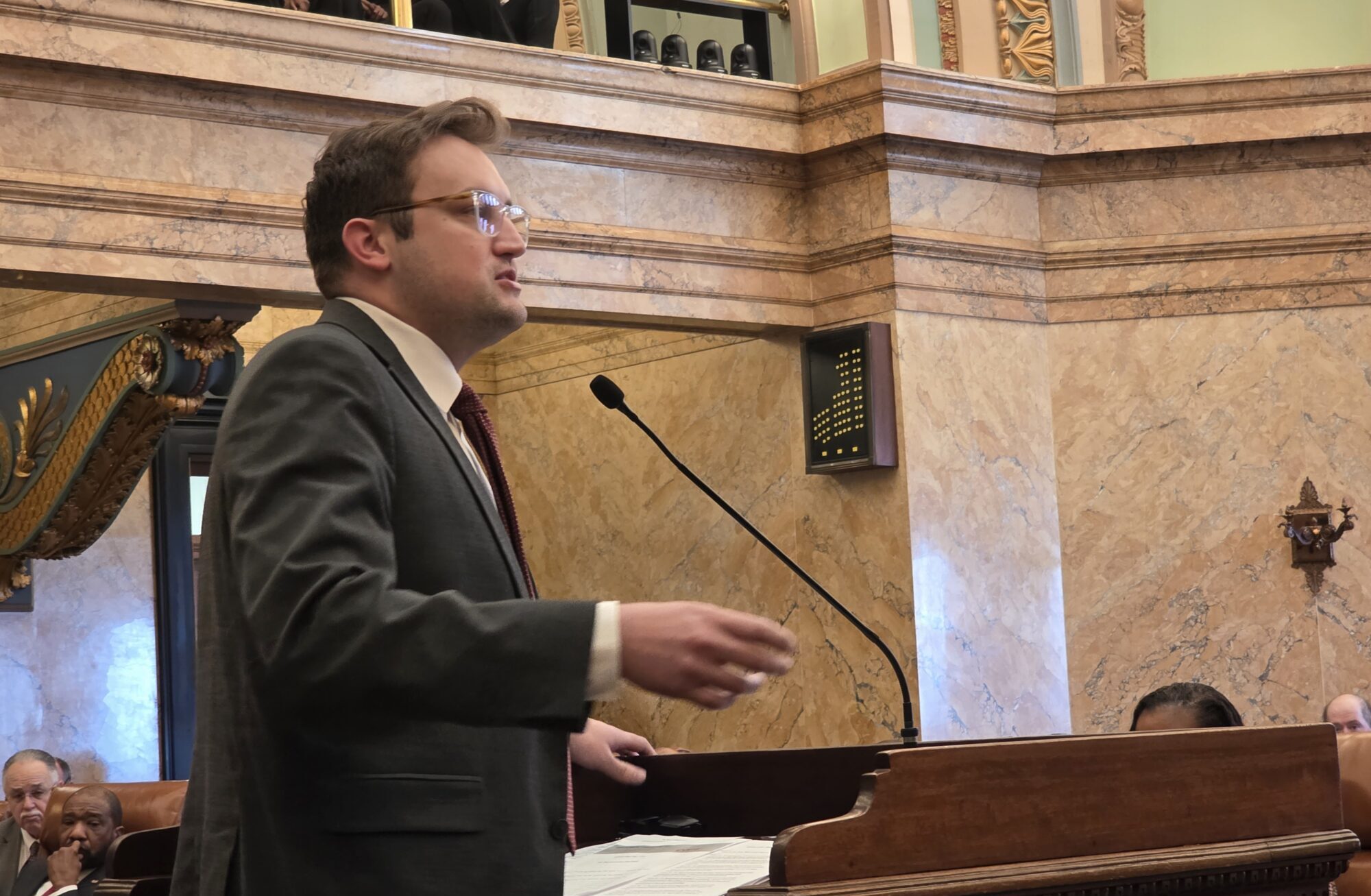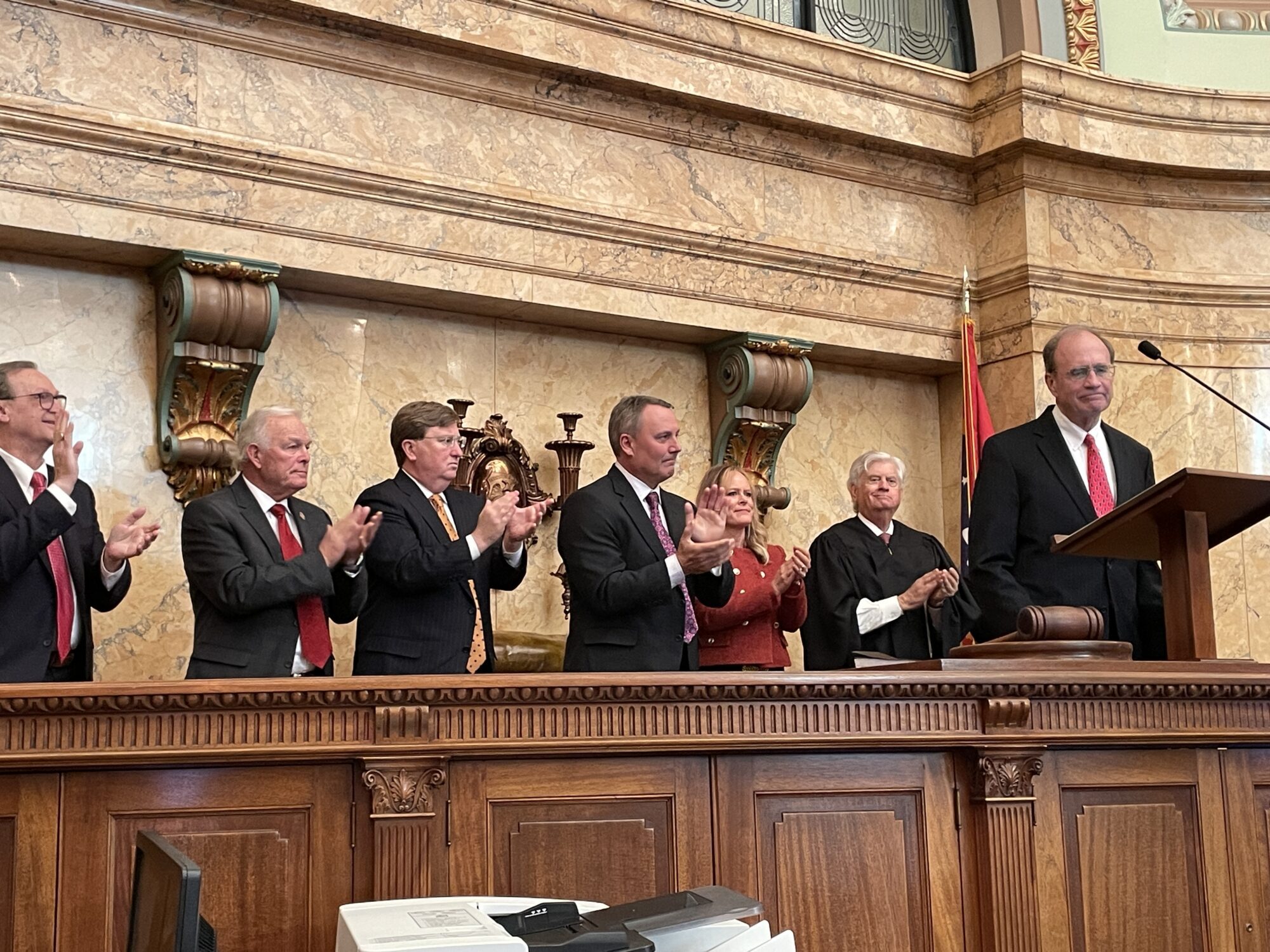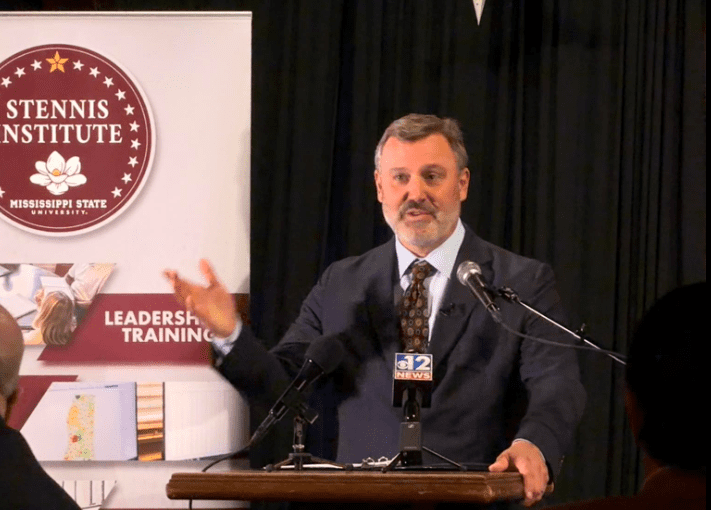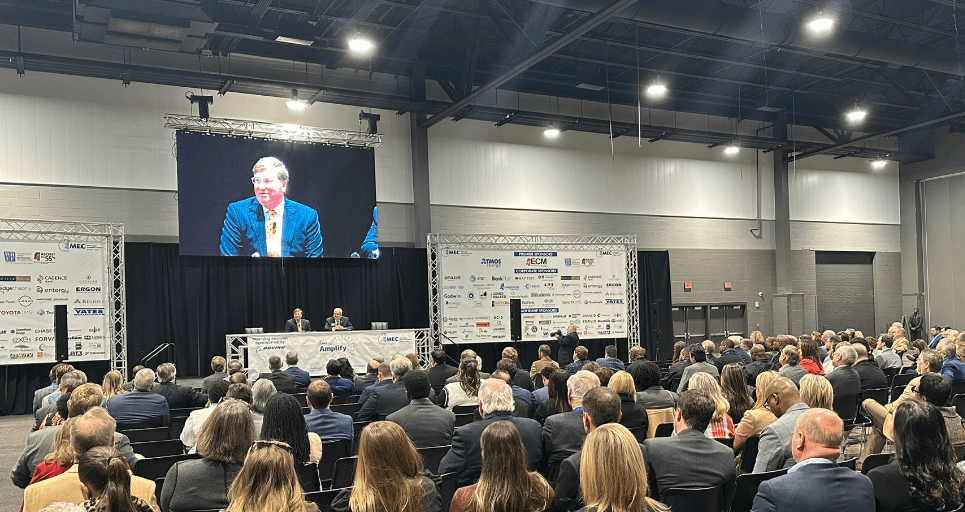
Governor Tate Reeves address MEC Capital Day on January 4, 2024 (Photo from TateReeves on X)
The second-term Governor told business leaders he was seeking funding for additional site development while touting the work of career coaches in Mississippi schools and calling for the elimination of the income tax.
Business leaders from across the Magnolia State gathered at the Mississippi Economic Council’s annual Capital Day to hear about the state’s business sector growth and what can be done to continue that trend.
One of the best ways to grow the state is to build a strong workforce while educating youth to become part of the population willing to work, organizers said.
Governor Tate Reeves, who spoke at the business gathering, said one of the challenges he sees in addressing workforce needs is the lack of sites that are ready for businesses to set up shop. To address that problem in his first year as the state’s chief executive his office found $27 million to start a site development program. Last session, the Governor sought $50 million but received $20 million. Reeves said this leaves dozens of sites ready for development, but not enough money to do the work.
“If you really want to see economic development continue to take off in Mississippi, help me get more site development money. Help me get more sites in areas all across the state,” Reeves told attendees.
Governor Reeves said there are about 30 sites ready for development where a business or industry can operate, but more funds are needed to install the core infrastructure in those locations, services such as water and sewer.
As for workforce development, the Governor noted that training starts with high schoolers. Reeves said gains have been made in the past 10 years in that regard. If the state starts with a better foundation in the form of educating its youth, more qualified workers will enter the workforce.
Recent successes show Mississippi gaining on the rest of the southeast region.
“Our kids relative to every other state in the southeast, we’re doing better than them in fourth grade reading and fourth grade math,” Governor Reeves said. “If you have the smartest fourth graders in the southeast United States, then in ten years you’re going to have the smartest workforce in the southeastern United States.”

The second-term Governor said there are shortages in several sectors, such as healthcare, energy and information technology. Reeves noted that to address that need $126 million has been invested in 135 programs in the state, mostly in community colleges in areas where it’s believed there will be high demand for good paying jobs in the future. He expects that demand to increase over the next 15 to 20 years.
To that end, Governor Reeves suggested changes be made in the K-12 education system to focus on career readiness, namely how assessment testing is administered. While he is not suggesting a total overhaul, Reeves does believe tweaks to the accountability model are necessary to meet the needs of those who will go straight into the workforce after high school.
Reeves pointed out that 70 to 75 percent of the population will not attend college. As such, there is a need for career coaches in high schools. Career coaches help high school students determine their interests and strengths as they consider fields that best suit their skills. Governor Reeves said the state has seen success in the schools that have career coaches, which is nearing 80 percent of the high schools in the state. All of the career coaches are state funded.
When he was growing up, Reeves said counselors focused on how to get students ready for college. Today, these career coaches do the same for students not interested in college.
“So, if that counselor model worked so well for those of us who were going to college, shouldn’t there be a similar model for those that are going directly into the workforce?” Reeves asked.
For career coaches to be successful, local and state businesses need to communicate their job openings with high schools. Doing so would allow the high schools to inform students about available positions that may interest them. By tailoring those needs to the regions in which those businesses operate, the goal is that more applicants will qualify to fill openings.
During his tenure, Governor Reeves said the average per capita income has increased by about $10,000 since 2019, bringing the amount to about $48,000 today, equating to roughly a 30 percent increase. While inflation is affecting all families across the nation, the increase in wages is helping, along with the continued economic development efforts in the state, Reeves added.
“What I’m most proud of is the average wages these companies are paying when they’re moving into our state. That’s how you increase per capita income – you bring jobs into the state that are paying higher wages because they require a higher amount of skills and we got to meet that demand,” Reeves told the business leaders.
A goal Reeves has is to continue to decrease, and possibly eliminate, the state income tax. By reducing those taxes on productivity, he believes the state is better positioned to attract more companies and therefore, better paying jobs for Mississippi workers.
Currently nine states in the nation do not have an income tax. Of the 41 that do, Mississippi is the fifth lowest, Governor Reeves said. Other states in the southeast, such as Texas, Tennessee and Florida, which don’t have income tax, have seen population growth.
“We have the ability to continue to lower and possibly eliminate that tax,” Reeves said.
It remains to be seen if lawmakers will heed the Governor’s call and seek to fully eliminate the state income tax during the 2024 legislative session that began this week.


